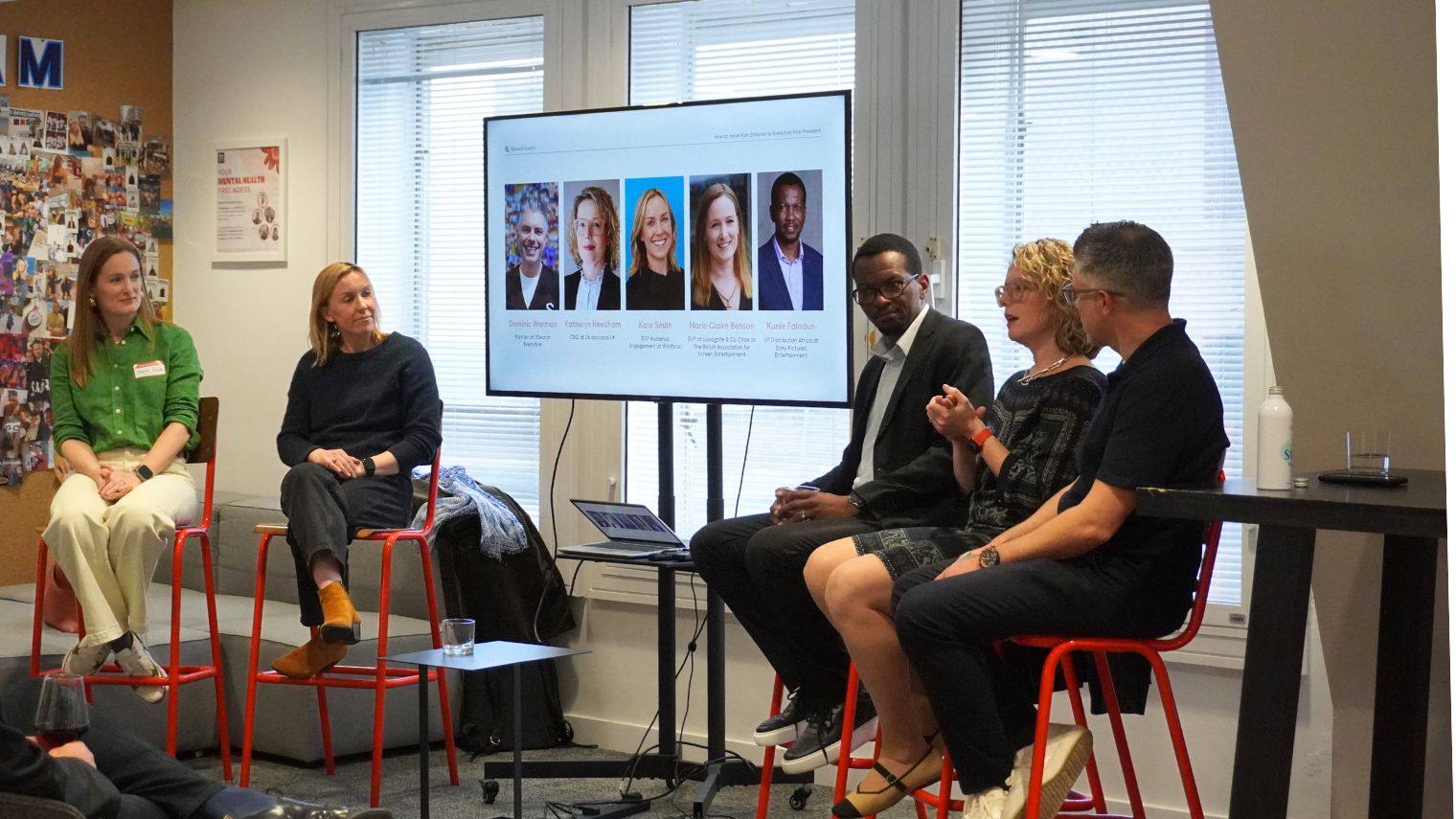Upload Your CV
Send us your CV and a member of the team will be in touch to discuss open opportunities with you.
The past five years have brought seismic shifts to the TV and Film industry. This artic...

The past five years have brought seismic shifts to the TV and Film industry.
This article recaps the key takeaways from our event exploring the impact of these changes on the role of leadership in the entertainment industry.
As the Film & TV industry continues to navigate a period of significant change, it’s crucial to have strong leaders at the helm. However, the combination of increased investment in new content, industrial action, the rising cost of production, lower consumer demand, and fierce competition for attention, has resulted in senior leaders feeling under more pressure than ever before.
To break down these challenges and support leaders in the Film & Television sector, our Executive Search Partner, Dominic Warman, brought his network together for an evening of discussion, connection and insight.
Attendees heard from:
Together, they discussed:
Keep reading for the key takeaways from their conversation.
This event was created with one clear purpose: to shine a light on the realities of leadership in the film and TV industry today. While there’s a wealth of advice available for those starting out in their careers, fewer conversations focus on what it means to lead through times of change. Especially in a market as fast-moving and unpredictable as entertainment.
The last five years have seen unprecedented disruption. The pandemic brought production to a halt, sent audiences online, and accelerated the dominance of streaming.
The result? Cinema admissions have yet to fully recover, and traditional funding models are under pressure. Meanwhile, global events continue to impact investment, production, and distribution.
The way that audiences consume media has been changed forever. Where the presence of online streaming services was a growing threat to television, this exploded when lockdowns were enforced.
Today’s audiences are less loyal to where content comes from, and more focused on what they enjoy. “They like what they like - they’ll just go and find it wherever they want,” said Kate Smith.
Deadline reported in February 2025, that YouTube viewership on TV screens has overtaken that of mobile devices. This signfies a huge shift in the consumption of media. What was once mobile-first is now living-room-first — changing how content is developed, packaged and marketed.
The impact of these changes is significant. Distribution models are changing rapidly and organisations must adapt to stay afloat.
As broadcasters can no longer rely on viewership, commissioning has slowed. One speaker shared, “Broadcasters have less money. Even the streamers are prioritising safe bets and well-known IP.” This makes financing new, original content more challenging than before.
In some markets, like parts of Africa, global streamers initially launched with big ambitions but later scaled back. “Recurring monthly payments can be a challenge in economies facing currency instability,” one panellist shared. “Transactional or ad-funded models are often more viable.”
To face these challenges head on and lead successful teams in the modern entertainment industry, it’s crucial to develop the following skills:
Our panel agreed that while AI has its place, it’s not yet a replacement for human judgment, especially in leadership or creative decision-making. They agreed that while it can certainly help speed processes up, nothing will replace the impact of a talented leader.
We rounded out the session with advice for career progression. Here are some of the best tips:
Many of the panellists didn’t follow a linear path to reach the current stage in their career. Instead, they built up a wide range of experiences across marketing, acquisitions, sales, and distribution. This breadth gave them the perspective and credibility to step into senior leadership roles later on.
Several leaders spoke about the importance of self-direction. Waiting for someone else to define your next step can stall your growth.
Career development doesn’t always happen in the day-to-day. The panel highlighted the value of carving out time to gain perspective.
Whether through formal tools, like CliftonStrengths, or feedback from trusted mentors, many found that understanding what they were naturally good at gave them confidence and direction.
Giving and receiving regular feedback was framed as one of the simplest and most effective ways to grow.
We want to extend a big thank you to our speakers for sharing your time and knowledge with us. It was a truly insightful evening.
One clear takeaway was that the entertainment industry is continuing to evolve rapidly. Do you have the right leaders in place to navigate change? With experts in the film and television sectors, our Executive Search team are ready to support your growth.